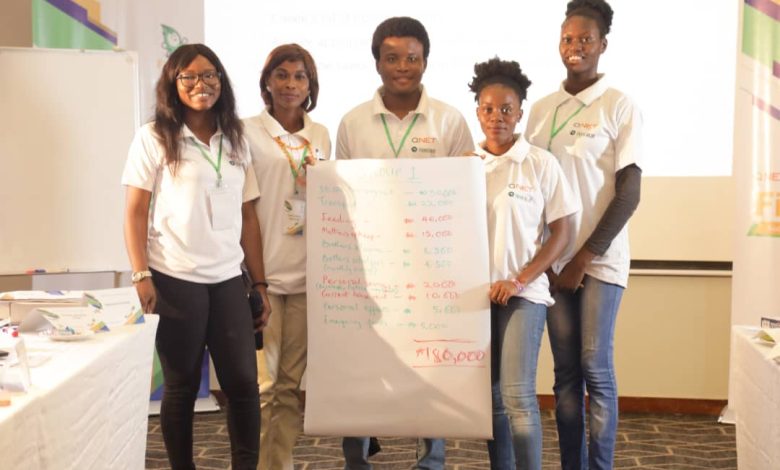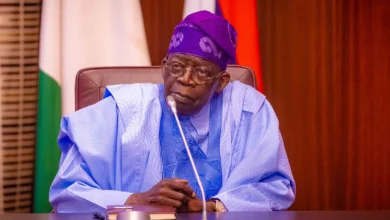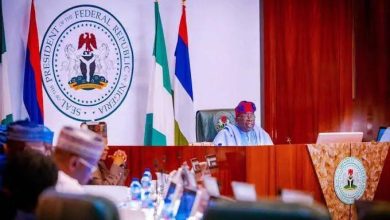How the QNET Fingreen Programme Shaped My Financial Discipline

Managing money has always been an arduous task for me. The urge to own new things, the satisfaction of fitting in, and the fulfilment of being able to afford the latest gadget, dress, shoes, or phone is an everyday challenge. Sometimes, this uncontrolled desire to spend money on anything new can be so appealing to the extent of buying things I barely need. Only a few minutes into the Fingreen Financial Literacy Training seminar by QNET, I dropped this urge to buy a new wig.
This was my situation before I joined the cohort of selected youths for the maiden edition of the Financial Literacy Programme dubbed FinGreen, organised by leading direct-selling e-commerce leader QNET.
For many years, impulsive buying dictated my spending attitude. I could buy anything at any time without restraint. This lack of financial planning did not only affect my finances but also raised critical questions about my financial attitude, decision-making, and knowledge about handling money. The FinGreen programme, therefore, couldn’t have come at a better time.
Participating in the FinGreen pilot scheme was a turning point in my life. Prior to the seminar, the only knowledge I had of financial literacy was the lessons learnt from following finance experts and coaches on social media and interacting with their content. I also read ‘The Richest Man in Babylon’ by George Clason, so I had a few ideas about saving money.
I will give a little backstory here. Remember the wig mentioned earlier? Well, I had made plans to buy a new one two days before the seminar. Note that I did not need a wig because I already had two. I only wanted to buy a new and better wig to give myself some sense of importance and a feeling of luxury. For some reason, I shelved the purchase of the item.
I believe it was a ‘silent advisor’ helping me keep my money for a better purpose. On the first day of training, I learned how ignorance was one of the driving forces of poverty. Critical at the session was the knowledge that many young people are caught in the web of being unable to control the urge to spend lavishly because of the lack of understanding of existing sustainable investment opportunities.
Exposed!! Popular Abuja doctor revealed how men can naturally and permanently cure poor erection, quick ejaculation, small and shameful manhood without side effects. Even if you are hypertensive or diabetic . Stop the use of hard drugs for sex!! It kills!
Throughout the session, I discovered that financial literacy is essential to identify these opportunities. Without the proper financial understanding, the inherent financial indiscipline most of us suffer from will have no end. It also took little time to understand that investing in my knowledge of the economic space was much more prudent than buying a new wig whose value would depreciate after a short while.
Financial literacy is an essential life skill one must learn. The important thing is to stay informed and keep learning. When you’re financially literate, you’re in control of your money. You know how to save for the future, invest long-term, and make your money work for you. You’re not dependent on anyone else to help you with your finances.
FinGreen opened my eyes to how one can experience financial freedom by learning fitting lessons and making calculated financial investments. I learned how important it is to have the right mindset about money and every other aspect of life. You can do it all on your own because the foundational knowledge of spending wisely has been well embedded.
With this new drive to do better financially, I have a monthly budget and do not spend beyond my means. I am saving more to invest and not necessarily to spend. Specifically, I save in dollars to hedge my earnings against the fluctuating naira to the dollar exchange rate. And I have built my investment portfolio to contain assets in real estate, cryptocurrency, and commercial papers.
One may argue that my story is one-in-100 cases and may not reflect the realities of other young people.
Well, that may not entirely be the case because there were 20 of us. We took a pre-assessment test before the training; I was one of the 88% who needed clarification about where our money was spent. About 83% of us in that training confessed that our finances were a constant worry for us, and we were willing to change the narrative.
However, after the training, most of us became so enlightened that just about 30% of the participants still needed clarification about where their money was spent.
it is noteworthy that after this encounter, I preached the gospel of financial literacy as a FinGreen ambassador in my locality with great success.
When I held a seminar for the youths in my church in July 2022, we had over 25 people in attendance, and about 17 others joined virtually via Instagram live. The interactions and conversations were beyond building financial capacity. Today, participants can make better financial choices and have been equipped with soft skills that can bring monetary value and knowledge about finding solid, reliable investments that will grow over time.
You may doubt investing your hard-earned money, but with some education and sound advice, it can be a gratifying experience. So, start today, unlearn all the financial indiscipline habits that add no value, and be your own financial advisor. This is a significant highlight of my 2022, and I will always remain grateful to QNET for the opportunity.




